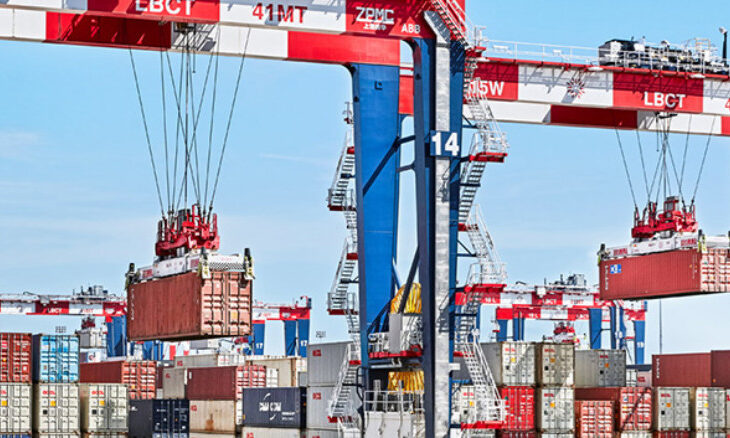
Colombo’s bustling port has entered into a strategic partnership with ABB to introduce cutting-edge automated stacking cranes, elevating the efficiency of its upcoming expansive terminals. The port, currently in the process of constructing two state-of-the-art automated terminals in Sri Lanka, envisions transforming into a pivotal transshipment hub for both East-West and regional container traffic in the Indian Ocean.
In 2022, transshipment volumes accounted for a significant 80 per cent of the Port of Colombo’s impressive handling of 6.86 million TEUs, catapulting it to the 23rd position in the global container port rankings. Despite this accomplishment, the port faces challenges arising from regional expansion, particularly in India, which could impact its ambitious plans due to potential full-capacity operations.
To address this, the Port is fast-tracking the development of two new container terminals. The primary objective is to accommodate approximately 250 daily ship crossings in the Indian Ocean, with a targeted capacity expansion to 24 million TEUs by 2040. The terminals aim to boast a deep draught of 20 mtr to accommodate the largest container ships.
The East Container Terminal (ECT), crafted by the Sri Lanka Ports Authority (SLPA), is set to bolster the port’s capacity to around 14 million TEUs. Anticipated to be operational by the second quarter of 2024, the initial phase of ECT will unlock 1.8 million TEU capacity, subsequently escalating to 3.6 million TEUs in 2025.
Even more expansive is the West Container Terminal (WCT), where the initial phase is being developed by Colombo West International Terminal—a collaboration involving India’s Adani International Port Holdings, Sri Lanka’s John Keells Holdings, and the Sri Lanka Port Authority. Envisioned to add a substantial 3.2 million TEUs of capacity, the first phase is scheduled to commence operations along 600 meters of quay by early 2025.
SLPA has enlisted ABB to deliver a cutting-edge system comprising 40 fully automated end-loading stacking cranes at ECT. These cranes, operating in what ABB terms ‘perpendicular automation,’ facilitate container movement between the quay crane and an intermediary transfer zone using straddle carriers.
Simultaneously, Colombo West International Terminal has opted for ABB technology for WCT-1, featuring 18 automated stacking cranes and eight ship-to-shore (STS) cranes with remote control. This setup utilizes a terminal tractor-chassis combination for seamless box transfers between the shore crane and the cantilever yard crane, referred to as ‘parallel automation.’
The choice of ABB’s rail-mounted, automated stacking cranes is underpinned by their energy and space efficiency. Additionally, the incorporation of crane automation and remote shore-side crane operations enhances overall safety. ABB’s track record includes over 1,000 automated stacking cranes deployed across more than 30 terminals globally, showcasing their versatility in end-loaded and cantilever configurations while seamlessly integrating with various terminal operating systems.
Jampala Raghuram, ABB Ports’ Regional Manager Sales, emphasized the significance of state-of-the-art handling technology in sustaining Colombo’s reputation for efficient container operations. He highlighted the pioneering role of East Container Terminal and CWIT as the island’s first facilities to feature automated cranes, underscoring their commitment to future-ready handling solutions.

